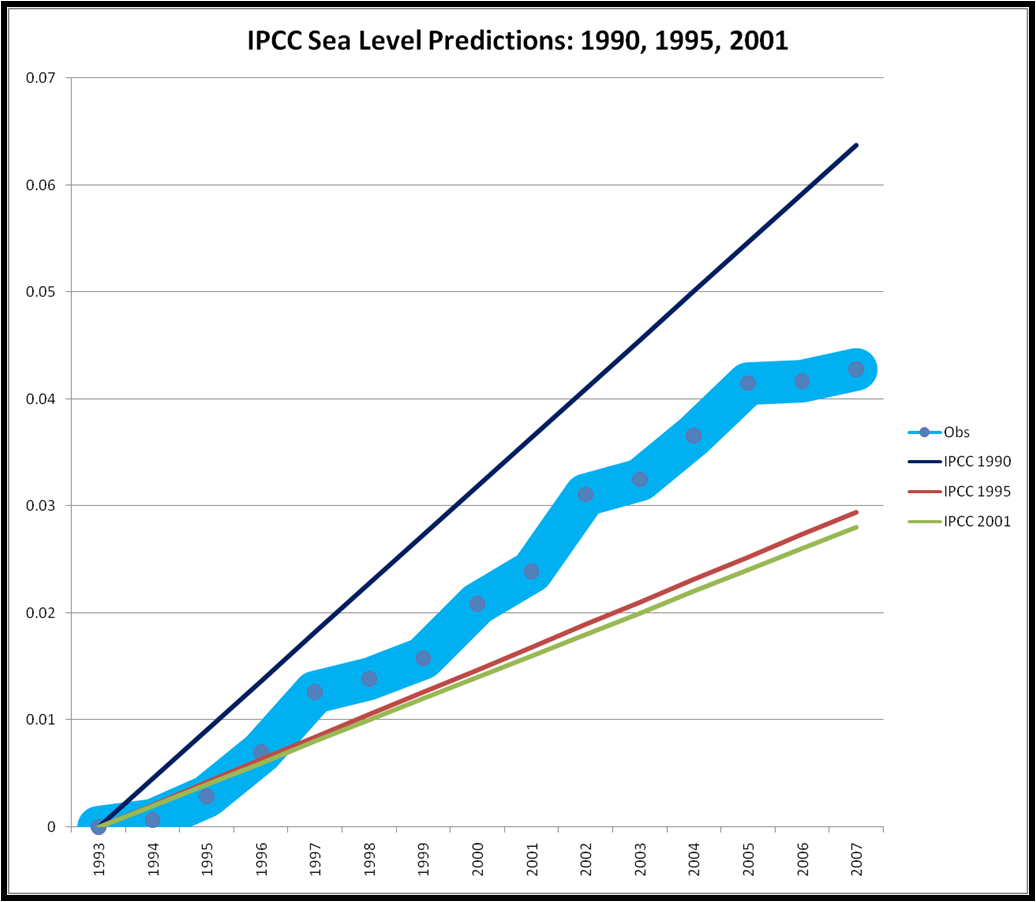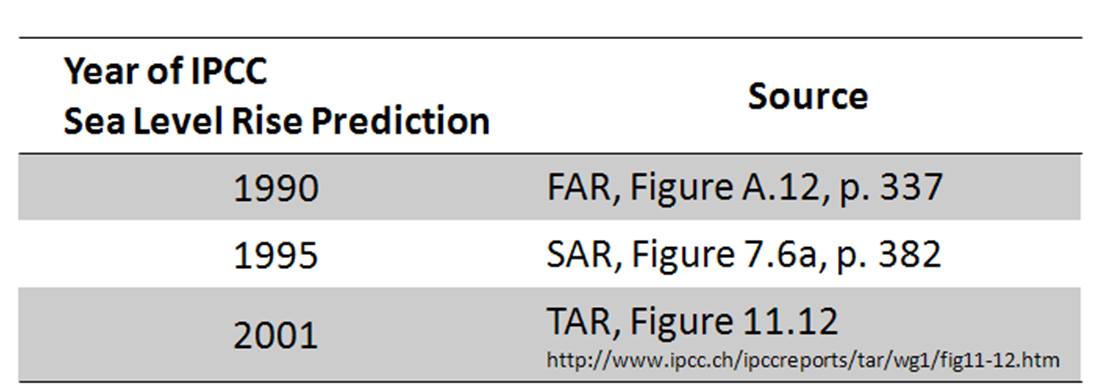Verification of IPCC Sea Level Rise Forecasts 1990, 1995, 2001
January 15th, 2008Posted by: Roger Pielke, Jr.
Here is a graph showing IPCC sea level rise forecasts from the FAR (1990), SAR (1995), and TAR (2001).

And here are the sources:

Observational data can be found here. Thanks to my colleague Steve Nerem.
Unlike temperature forecasts by the IPCC, sea level rise shows no indication that scientists have a handle on the issue. As with temperature the IPCC dramatically decreased its predictions of sea level rise in between its first (1990) and second (1995) assessment reports. It then nudged down its prediction a very small amount in its 2001 report. The observational data falls in the middle of the 1990 and 1995/2001 assessments.
Last year Rahmstorf et al. published a short paper in Science comparing observations of temperature with IPCC 2001 predictions (Aside: it is remarkable that Science allowed them to ignore IPCC 1990 and 1995). Their analysis is completely consistent with the temperature and sea level rise verifications that I have shown. On sea level rise they concluded:
Previous projections, as summarized by IPCC, have not exaggerated but may in some respects even have underestimated the change, in particular for sea level.
This statement is only true if one ignores the 1990 IPCC report which overestimated both sea level rise and temperature. Rahmstorf et al. interpretation of the results is little more than spin, as it would have been equally valid to conclude based on the 1990 report:
Previous projections, as summarized by IPCC, have not underestimated but may in some respects even have exaggerated the change, both for sea level and temperature.
Rather than spin the results, I conclude that the ongoing debate about future sea level rise is entirely appropriate. The fact that the IPCC has been unsuccessful in predicting sea level rise, does not mean that things are worse or better, but simply that scientists clearly do not have a handle on this issue and are unable to predict sea level changes on a decadal scale. The lack of predictive accuracy does not lend optimism about the prospects for accuracy on the multi-decadal scale. Consider that the 2007 IPCC took a pass on predicting near term sea level rise, choosing instead to focus 90 years out (as far as I am aware, anyone who knows differently, please let me know).
This state of affairs should give no comfort to anyone: over the 21st century sea level is expected to rise, anywhere from an unnoticeable amount to the catastrophic, and scientists have essentially no ability to predict this rise, much less the effects of various climate policies on that rise. As we’ve said here before, this is a cherrypickers delight, and a policy makers nightmare. It’d be nice to see the scientific community engaged in a bit less spin, and a bit more comprehensive analysis.
January 14th, 2008 at 5:35 pm
What kind of computers did they work with in the late 1980s?
January 15th, 2008 at 3:09 am
Units on the y-axis? Is that meters?
January 15th, 2008 at 4:14 am
Yes, it is meters, apologies for cutting it off.
January 15th, 2008 at 10:28 am
Comment received by email:
“Here is an interesting link on sea level: http://www.co2science.org/scripts/CO2ScienceB2C/articles/V11/N3/C1.jsp
It suggests that the actual sea level rise is much lower than the data you presented.
It appears that measuring sea level is quite difficult and influenced by many factors that do not include climate. I think you should level it off your list of metrics used to verify IPCC forecasts.
Regards,
Raven”